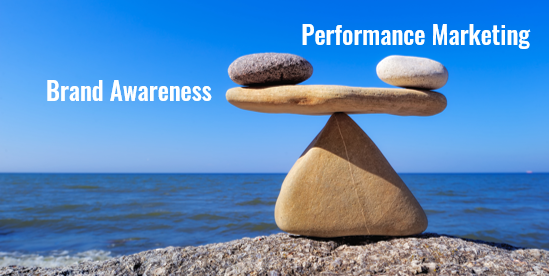Many legal industry marketers dramatically accelerated their use of digital marketing during the pandemic, focusing on lead-generation and other performance marketing tactics.
But as a recent article in the Harvard Business Review points out (Ten Truths About Marketing After The Pandemic) as we move forward there is a strong need to balance brand/product awareness and performance marketing to achieve the best results.
“Many companies are bringing their customer relationship (CRM) team closer than ever to their media teams to see the full continuum more easily and realize efficiencies,” writes the author, Janet Balis who heads consultant E&Y’s CMO practice.
“It will be important for companies to leave space for both brand and performance marketing given that bottom funnel strategies drive top funnel goals and vice versa. Simply put, they work better together,” she says.
I couldn’t agree more. And this is a key reason why Law.com. is now offering a new Integrated Marketing Hub solution.
We’re offering branding and awareness with a big-time promotional program that drives prospects to four of your brand/product assets on an interactive content hub. And we offer performance marketing via a lead-gen program and a follow-on ad program that provides air cover as your sales team follows up on the leads. (Click here for details). And all of this is project managed for seamless execution.
As always, if you have any questions, please feel free to contact me via email at [email protected]. And, lastly, as usual, please read on to find the latest legal industry developments that are most important for marketers to know about.
Trends Legal Industry Marketers Need to Know
- Mental health. Lawyers and staff were struggling with mental health before the pandemic, and that’s only been exacerbated, as our annual mental health survey showed. It’s an issue that firms have grown more conscious of, but one they’ll need to keep a close eye on moving forward so the shift from remote to in-office work doesn’t create any heavier burdens on struggling workers. Also, one in four women has considered leaving the law because of mental health.
- Regulation upon us. Many new AI and cloud-based technologies have been considered the “Wild West,” with not much governmental oversight into how they should be used. But that’s rapidly changing. This past month, the EU proposed new rules governing AI, the Biden administration issued an executive order for cybersecurity in government products, and many states are looking at new privacy and biometric information laws.
- Legal ops in the ecosystem. Especially in the early days of the legal ops discipline, there was a big movement to set legal ops “apart” as a distinct discipline – likely for legitimacy if nothing else. But as legal ops is now clearly here to stay, the next step has been integrating the community into the wider legal ecosystem. CLOC’s new president says explicitly that working with outside providers is key, and new pathways are being forged for legal ops hiring, increased integration with company IT departments, and legal ops veterans taking their talents across the industry.
- Diversity initiatives. There is a microscope on diversity and how companies are responding to internal and external pressures. One article highlighted a new Diversity Lab pilot program that aims to standardize diversity requirements that legal departments impose on their outside counsel, while building a stronger framework for these requirements in which in-house leaders can place an emphasis on progress and improvement within their outside firms. Another piece examined diversity programs that work. In-house attorneys from HP and Microsoft spoke during a panel about how their companies encouraged outside counsel to put diverse attorneys on matters. The discussion was scheduled before the abrupt resignation of Bradley Gayton, but given Gayton’s ouster, concerns are swirling around diversity staffing issues.
- Evolution of the GC role. General counsel from Agilent Technologies, Square and Google discussed how giving candid and sometimes unpopular opinions early on in their in-house career led to them taking the reins of the legal department and finding themselves with more trust as business partners. Spotify chief legal officer Horacio Gutierrez’s recent op-ed in the Wall Street Journal on lashing out at Apple Inc. for being a “ruthless bully that uses its dominance to hobble competitors” is a prime example of how dramatically the general counsel role has evolved.
